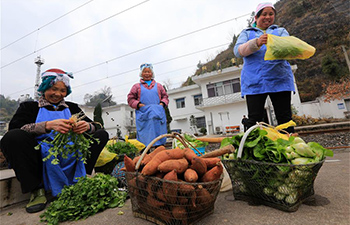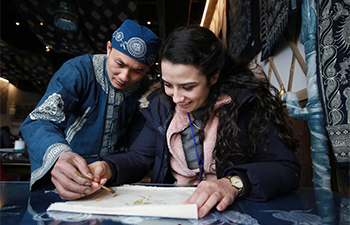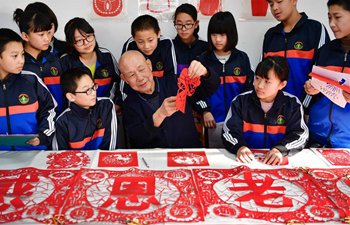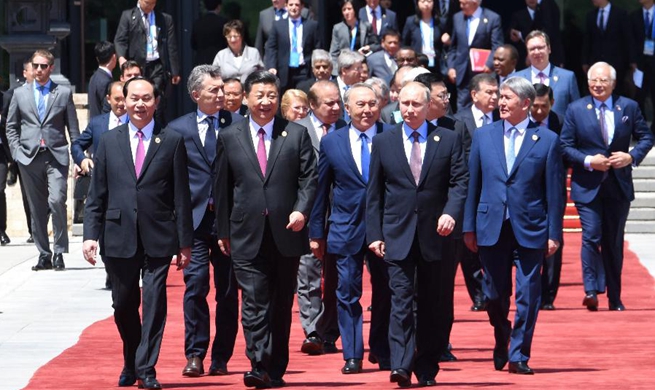TOKYO, Jan. 12 (Xinhua) -- Japanese Prime Minister Shinzo Abe on Friday rejected South Korea's calls for a sincere apology to the "comfort women" who were forcibly conscripted to work in wartime military brothels, despite evident flaws in a bilateral deal.
Abe's remarks, the first from the Japanese leader since South Korean President Moon Jae-in called for the apology during a recent New Year's press conference, came despite Seoul not requesting a bilateral deal on the issue be renegotiated.
"We can by no means accept South Korea's unilateral request for additional measures. The Japan-South Korea deal was a promise between countries. It is an international and universal principle to keep it," Abe told reporters prior to departing for an East European tour.
Moon had stated that while it is "undeniable" that the deal is an official bilateral agreement, the "erroneous knot" with Japan over the "comfort women" issue must be untied by Tokyo apologizing to the victims.
Under a landmark bilateral deal struck in December 2015 under the government of Moon's predecessor Park Geun-hye, both countries agreed that the "comfort women" issue, that had led to diplomatic ties between both countries becoming significantly strained, would be "finally and irreversibly" resolved.
However, Moon said in December that the wartime sexual slavery issue cannot be resolved by the 2015 deal with Japan, as a secret agreement was found between the two countries after reviewing the procedure of the deal.
Moon said at the time that a grave fault was found in procedures and contents of the 2015 negotiations between the two governments that proved to be a costly blunder.
He said that although it was a political agreement, it excluded the victims and ordinary South Koreans.
Moon noted that the 2015 deal was against the international community's universal principle of resolving historical issues and that people were deeply disappointed at the existence of undisclosed agreements.
Moon and his administration had previously inferred that they are revisiting the process under which the accord was made under the previous government, noting that the pact does not reflect the will of the majority of South Korean people.
The South Korean side also believes that prior to the deal being made with Japan, those who served as "comfort women" were not sufficiently consulted and their feelings not fully taken into account at the time.
Seoul, while maintaining it will not seek to renegotiate the deal, said it will plan to match the 1 billion yen (8.98 million U.S. dollars) paid by the Japanese government under the deal, with South Korea's Foreign Minister Kang Kyung-wha saying that it will decide how to use Japan's contribution.
The so-called "comfort women" issue involved soldiers from the Imperial Japanese Army (IJA) during World War II, forcibly coercing and even kidnapping girls, some of them underage, and women, and forcing them to work as sex slaves, servicing Japanese soldiers at military brothels during the war.
Many of the women forced into sexual slavery by the Japanese aggressors came from the Korean Peninsula as well as other parts of Asia, including China.
"A sincere apology from Japan to the surviving 'comfort women' and for those who have already passed, would go a long way towards restoring the women's honor and dignity and restoring political and social ties between both countries," a representative of a Japan-based think tank said of the matter here recently.
South Korean Foreign Minister Kang said Seoul expects Tokyo to do more to settle the matter, but would not seek to renegotiate the deal.
Japan's Chief Cabinet Secretary Yoshihide Suga, however, said recently that Tokyo is "not thinking of moving even a millimeter on the deal."
Abe on Friday after making the remarks left Japan for a six-day tour that will see him visit three Baltic states and three East European nations, including Estonia, Latvia, Lithuania, Bulgaria, Serbia and Romania.

















